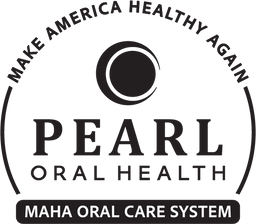What is Hypochlorous Acid?
Hypochlorous acid (HOCl) is a natural substance that your body secretes from neutrophil cells. The role of HOCl in the body is to neutralize the inflammatory mediator, toxins, and bacteria while working as an antimicrobial agent. It works by deactivating harmful enzymes and preventing the formation of biofilm. It plays as an essential substance for optimal health.
HOCl has antimicrobial properties, and it can replace many antiseptics and antibiotics. HOCl is beneficial for your immune system as it improves infections and wounds. Furthermore, you can use products that include HOCl to relieve pain, burning sensation, and itchiness.
Uses of Hypochlorous Acid for the Eyes
Some benefits of Hypochlorous Acid for Eyes are:
- Eliminating bacteria, improving inflammation in eyes, eyelashes, and eyelids.
- HOCl can help in conditions such as dry eye disease, meibomian gland dysfunction, and blepharitis.
- HOCl is safe to use to avoid dryness and irritation of eyes and eyelids.
- Hypochlorous acid spray is effective and easy to use.
- This acid is safe to use in the right concentrations with various products as it doesn’t induce adverse reactions.
What is Blepharitis?

The role of your eyelid is to protect and cover your eyes from injury or debris. Your eyelids contain lashes with curved and short hair follicles on the end of the lids. These follicles consist of oil glands.
When these oil glands clog and start irritating, it triggers an eyelid disorder. Blepharitis or eyelid inflammation is one type of such diseases.
Symptoms of Blepharitis
This condition makes your eyelids itchy, red, and a little swollen, turning the bases scaly. You may also find the following symptoms:
- Crusty eyelashes in the morning
- Watery eyes
- Red eyes
- Dry eyes
- Blurry vision
- Sensitivity to light
- Burning sensation in the eyes
- Feeling as there is something in your eye
Causes of Blepharitis
There is no proper cause for blepharitis, but some risk factors or reasons for blepharitis may be:
- Malfunctioning oil gland present at the edge of eyelashes
- A side effect of some kind of medication or prescription drug
- Bacterial infection
- Having lice or eyelash mites
Medication
Your doctor may recommend medication or a natural remedy depending on the reason for your blepharitis:
- Antiviral drugs
- Cleaning eyes with warm water
- Plugs and methods to block tear duck, so more tears stay in your eyes
- Artificial tears
- Various antibiotics such as pills, sprays, drops, or ointments for the eyes
- Other medications, such as cyclosporine or glucocorticoids, may also work
Researchers have been studying the treatment of this condition with heat and pulse light. Medical professionals are working to introduce more treatment options for blepharitis in the future.
By keeping your eyes clean, you can avoid the symptoms of blepharitis, meibomian gland dysfunction, and dry eyes.
Using Hypochlorous Acid for Blepharitis
Hypochlorous acid (HOCl) has become a popular anti-bacterial remedy for cleansing eyelids in recent years. After using HOCl, many patients
Using hypochlorous acid is easy because it is usually available in a spray. To use this spray on your eyes, you need to clean makeup and debris from the area and apply it to closed eyelids. Rub the solution gently so your eyes can dry out the solution by soaking.
Many people spray the liquid on a cotton ball and apply it on the eyes. Both of these ways are effective and fine. You should use hypochlorous acid twice a day to clean your eyes.
As HOCl is safe and non-toxic, many eye spray brands are using this product. A clinical study found that hypochlorous is useful for destroying organisms and bacteria related to blepharitis. Patients experienced improved contact lens tolerance, eye comfort, and less redness.
Dosage and Method
Sprays with hypochlorous acid work well, and it takes just a few seconds to apply. Spray the liquid on an oval or round cotton swab and rub gently over your eyelashes and lids in a horizontal movement at least two times a day. You need to repeat this process for your eyelid and the other eye with a clean cotton swab.
Conclusion
Hypochlorous acid is an effective remedy for blepharitis. However, we recommend before using any product for your condition, visit your health care provider for better consultation. After a proper eye exam and some tests, if it is necessary, your doctor will decide on a treatment plan.
You can avoid blepharitis by cleaning your eyes regularly. Cleaning can also keep your eyes healthy.
Visit Holistic Dentistry USA for more articles on Hypochlorous Acid.


